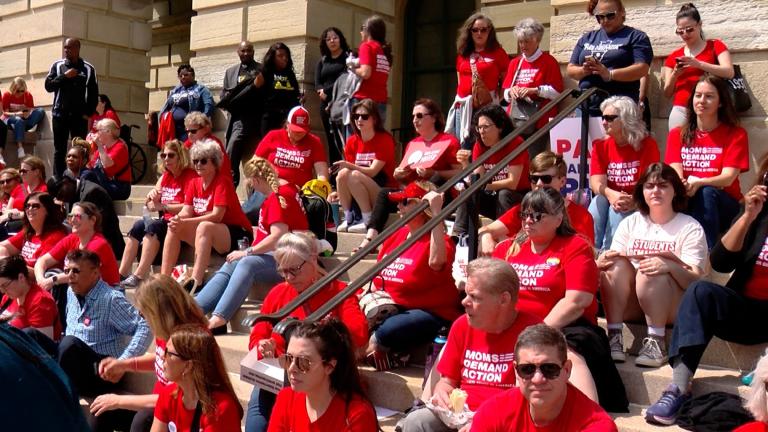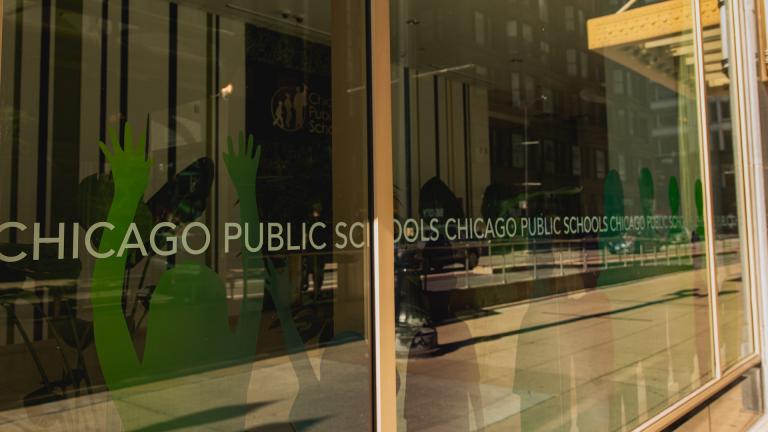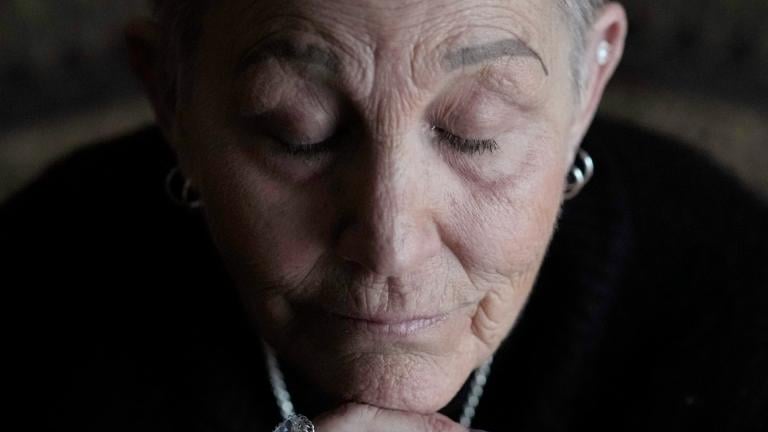Note: This segment originally aired on the May 25, 2023 episode of "Chicago Tonight," prior to the Senate's budget vote.
After a series of delays, the heavy-lifting to pass a new state budget is done, though steps remain before the work is complete.
The $50.6 billion spending plan (SB250) passed the Illinois Senate late Thursday night, with only the support of Democrats who drafted it.
“This budget continues the work Democrats have done to restore economic prosperity to our state,” Senate President Don Harmon said in a statement. “It encompasses our shared goals of responsible budgeting and paying down debt while investing in key priorities like education, violence prevention and affordable housing.
Members of both parties lauded aspects of the budget for fully meeting the state’s legally required pension payment and increases in funding for hospitals and all levels of education.
“There are many good things in this budget. Higher education is getting a much-needed increase,” Republican Sen. Chapin Rose, R-Mahomet, said.
Rose went on to praise the majority party for what he described as a sincere attempt at including the GOP in the budget conversation.
But at a budget committee meeting Thursday morning, he fretted that the measure spends nearly all of the $50.7 billion in revenue the state’s expected to take in, leaving little to account for raises that the powerful AFSCME union may secure for its members as they negotiate a contract to replace the collective bargaining agreement in place through June 30.
Some 15 hours later during the floor debate, Rose took a different direction, as he bemoaned that other deserving needs were not funded because of what he called a “crowding out effect” that will have the state spending more on healthcare for undocumented immigrants than on other priorities.
Spending on that project was a major stumbling block throughout the tail end of negotiations, leading to a series of delays that kept the budget from passing by the General Assembly’s original May 19 deadline, and remained contentious through the vote.
Projections show the program was set to cost $1.1 billion, far more than Gov. J.B. Pritzker had originally targeted to spend, even as Latino lawmakers pushed to expand coverage from those over age 42 to those age 19 and up.
The budget does not expand the eligibility pool, however, and is predicated on Illinois spending half that amount.
Language in a separate measure (SB1298) gives Pritzker one year of emergency authority to propose rules that he said will give him tools to contain those costs to $550 million.
Republicans, however, said that $550 million could have been better put to use, for example by using a portion of that money instead to give workers who care for the developmentally disabled a $4-an-hour wage increase rather than a $2.50-an-hour pay hike, or to give hospitals a 20% rather than 10% increase in reimbursements for Medicaid patients — the first increase they’ve received in nearly three decades.
“Your priorities are very transparent in this budget. Your unwillingness to work with us is apparent in this budget process and it’s offensive,” Sen. Jason Plummer, R-Edwardsville, said. “How do I tell the people in my district that you care about them? That the people in Springfield care about them? … When this budget does nothing but disrespect them?”
Democratic Sen. Celina Villanueva, D-Chicago, said the intimation that funding the immigrant healthcare program pushed out prioritizing the developmentally disabled was offensive, and that legislators shouldn’t try to “pit vulnerable populations against vulnerable populations” and warned Republicans “don’t use my communities are political scapegoats.”
“For anyone that’s attempting to say that undocumented communities deserve something less because they don’t pay taxes, because they don’t deserve it, guess what? They do,” Villanueva said. “One of the big issues over the course of this conversation has been ‘Well, why do they cost so much money?’”
The answer, she said, is because of higher rates of cancer among the undocumented population, “because this is the first time that they’ve ever had access to healthcare.”
In many ways, the measure mirrors the plan Pritzker introduced in February. It includes $250 million for his new signature “Smart Start” program that creates new spots in preschools, pays for more early intervention home visits, and boosts spending on child care for low-income working parents and those seeking work.
Pritzker described the budget as balanced and fiscally responsible.
“This budget makes transformative investments in the children and families of Illinois while building on our record of fiscal responsibility,” Pritzker said in a statement. “I look forward to the House taking up this budget that will make childcare and education more accessible, healthcare more affordable, and our state’s business and economic position even stronger.”
The plan calls for sending an extra $112 to municipalities, via an increase in the Local Government Distributive Fund, which will send cities including Chicago 6.47% of the state’s share of the income tax, up from 6.16%.
Republicans are upset that the budget didn’t give families a break in the estate tax, and that the General Assembly is allowing the Invest in Kids program, which gives donors a tax credit for contributing to a state fund that pays for low-income scholarships for low-income students.
The House is set to begin taking up the budget on Friday evening, though it has to be Saturday (even if just after midnight Friday) before representatives can take a final vote.
Follow Amanda Vinicky on Twitter: @AmandaVinicky








